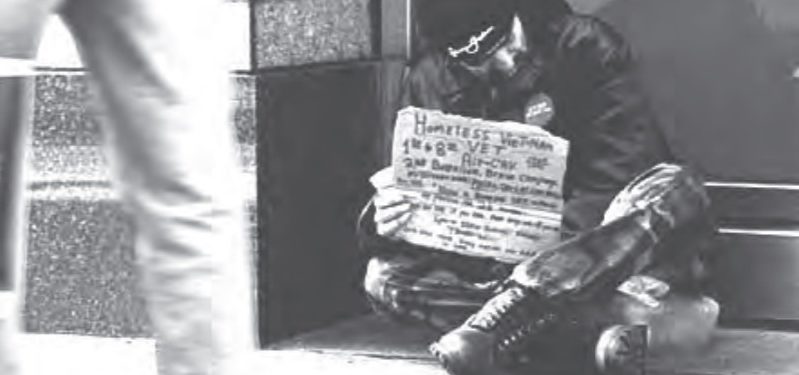Secretary of Veterans Affairs Eric Shinseki is spearheading a plan to end homelessness among veterans in five years. Is homelessness a solvable problem or is this an empty promise? Here are five reasons why research suggests that it’s possible for the VA to reach its goal.
Are the Huge Numbers Manageable?
According to VA estimates, some 107,000 veterans are homeless on any given night. While this number demonstrates that far too many veterans are homeless, it’s a number policymakers can wrap their hands around. It shows that with some investment in housing and services, we can help those currently homeless get back into permanent housing.
Does Avoiding the Issue Cost More?
Adults who are homeless for long periods are frequently users of public services. They are in and out of emergency shelters, jails, hospital emergency rooms and substance use detox and treatment facilities. These services are costly.
Research conducted by Dennis Culhane at the University of Pennsylvania shows that permanent supportive housing is successful in helping chronically homeless adults stay housed and that the bill for providing supportive housing can be offset by a decrease in the use of other public services. In other words: it costs a lot to do nothing about homelessness.
New Veterans, Same Problems?
Most veterans who are homeless served in the Vietnam era, and many showed up in homeless shelters years after the war. New data show that veterans who served in Iraq and Afghanistan are slowly trickling into homeless shelters too, and their numbers will most likely swell if nothing is done to help them. The VA has learned a lot since the aftermath of Vietnam and appears determined not to repeat the mistakes of the past. The VA and the Department of Housing and Urban Development (HUD) recently announced a new homelessness-prevention demonstration program that will target veterans, particularly those returning from Iraq and Afghanistan, many of whom are suffering from high rates of PTSD, before they show up at the front door of emergency shelters.
Are Housing Vouchers Successful?
Research shows that supportive housing – housing linked with intensive services – for chronically homeless veterans with serious mental illness or disabilities can help even the most vulnerable veteran come in off the street. In the past few years, Congress has expanded HUD-VASH, the supportive housing program administered jointly by HUD and the VA, by about 30,000 housing vouchers. If congressional appropriations for this program remain constant over the next five years, the VA will be very close to reaching its goal of ending homelessness among veterans.
Innovation is a Must!
Just as a corporation invests in product testing and market research to improve its bottom line, the VA must invest in research and development to identify new, successful interventions for homelessness and measure and monitor progress. Policymakers have learned a lot about how to end homelessness among veterans; the next step is more research on prevention. To incubate and test innovative responses, the VA launched its National Center on Homeless Veterans in 2008. Staffed by practitioners and researchers, this center over the next few years will provide the VA with better estimates of the size of the problem, share best practices from around the country, and pilot new interventions to prevent and end homelessness among veterans.
If you are currently homeless or at risk of homelessness and are a veteran, you can call 1-877-4AID VET. The call center is open around the clock and a counselor will direct you to the appropriate services at a local community organization or VA Medical Center.
Mary Cunningham is a senior research associate with the Urban Institute.
This article first appeared in Veterans’ Vision.




